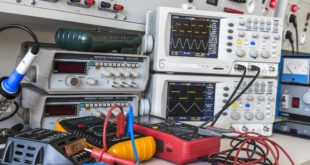Introduction
The final frontier, as space is often called, has always captivated the human imagination. Over the past few decades, we’ve made significant strides in space exploration, from landing on the moon to sending rovers to Mars. But as we set our sights on more ambitious goals, such as lunar bases and missions to distant planets, we encounter new challenges. The vastness of space, coupled with its harsh and ever-changing conditions, necessitates advanced technologies to ensure the success of these missions. Adaptive control technologies have emerged as a crucial element in navigating the cosmos, making space exploration and colonization increasingly feasible.
Recent advancements in artificial intelligence (AI) have led to groundbreaking innovations in adaptive control systems. This article explores the profound significance of these adaptive control technologies are poised to shape the future of space exploration and colonization.
Understanding Adaptive Control
Before delving into its applications in space exploration, let’s grasp the concept of adaptive control. At its core, adaptive control is a branch of control engineering that deals with systems that change over time or in response to different conditions.
In both military and space exploration contexts, control systems play a vital role in managing complex devices or systems, ensuring they behave as intended. The control systems typically comprise interconnected components such as sensors, controllers, actuators, and feedback mechanisms. Traditional control systems rely on predefined rules or algorithms, often with assumptions about the system’s behavior. However, these rules may not always apply in dynamic, unpredictable environments.
Adaptive control systems, on the other hand, continuously monitor real-time feedback from the system, making instant adjustments as needed. This adaptability enhances system performance and ensures optimal operation under changing conditions, which is essential for both military and space applications. It’s about making systems smart enough to adjust their behavior to achieve specific objectives. In space exploration, where conditions are dynamic and unpredictable, this technology is indispensable.
Adaptive control technologies use AI, including machine learning algorithms and reinforcement learning, to adjust control parameters in real time. This adaptability enhances military systems’ ability to optimize their responses and strategies in various scenarios, ensuring they maintain a tactical advantage.
Applications in Space Exploration
- Autonomous Rovers and Drones: On celestial bodies like Mars or the Moon, humans are millions of miles away, making real-time control challenging. Adaptive control systems are employed in rovers and drones to enable them to respond to unforeseen obstacles, adjust their trajectories, and adapt to changing terrains. These systems are essential for optimizing data collection and scientific research.
- Satellite Constellations: In today’s space age, we’re moving away from single, monolithic satellites to fleets of smaller, interconnected satellites. Adaptive control helps these constellations maintain precise formations, distribute workloads, and respond to space debris or orbital deviations effectively.
- Deep Space Missions: As we venture deeper into space, communication delays become a significant issue. Adaptive control technologies ensure that spacecraft can autonomously handle tasks, make critical decisions, and even adjust their trajectories when communication with Earth is limited. This level of autonomy is crucial for missions to distant planets or asteroids.
- Space Habitats: For the establishment of lunar or Martian bases, adaptive control plays a pivotal role in managing life support systems, optimizing resource usage, and maintaining environmental conditions. These systems help ensure the safety and sustainability of human colonies in space.
Challenges and Future Prospects
While adaptive control technologies have revolutionized space exploration, several challenges lie ahead. These include developing systems that can handle the prolonged exposure to harsh space conditions, creating redundancy to mitigate the risk of system failures, and addressing ethical and legal concerns surrounding autonomous space activities.
Looking to the future, adaptive control technologies are set to become even more sophisticated. Machine learning and artificial intelligence will play a more significant role in decision-making processes for spacecraft and rovers, allowing them to learn from past experiences and adapt to a broader range of scenarios.
Conclusion
Adaptive control technologies are the key to unlocking the mysteries of the cosmos. As we strive to establish lunar bases, mine asteroids, and send humans to Mars, these systems will become the linchpin of our endeavors. By creating adaptable, autonomous systems, we ensure the success, safety, and sustainability of our space exploration and colonization missions. With adaptive control at the helm, the final frontier is well within our reach.
 International Defense Security & Technology Your trusted Source for News, Research and Analysis
International Defense Security & Technology Your trusted Source for News, Research and Analysis
